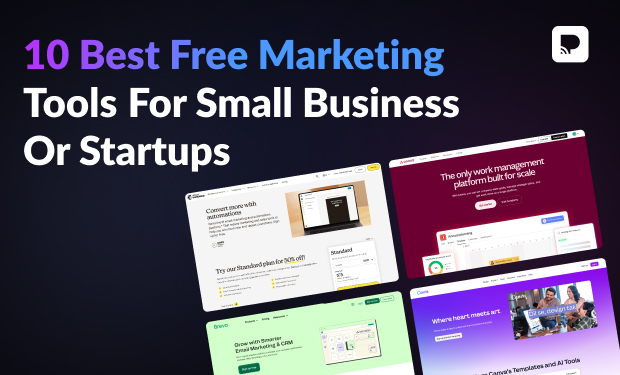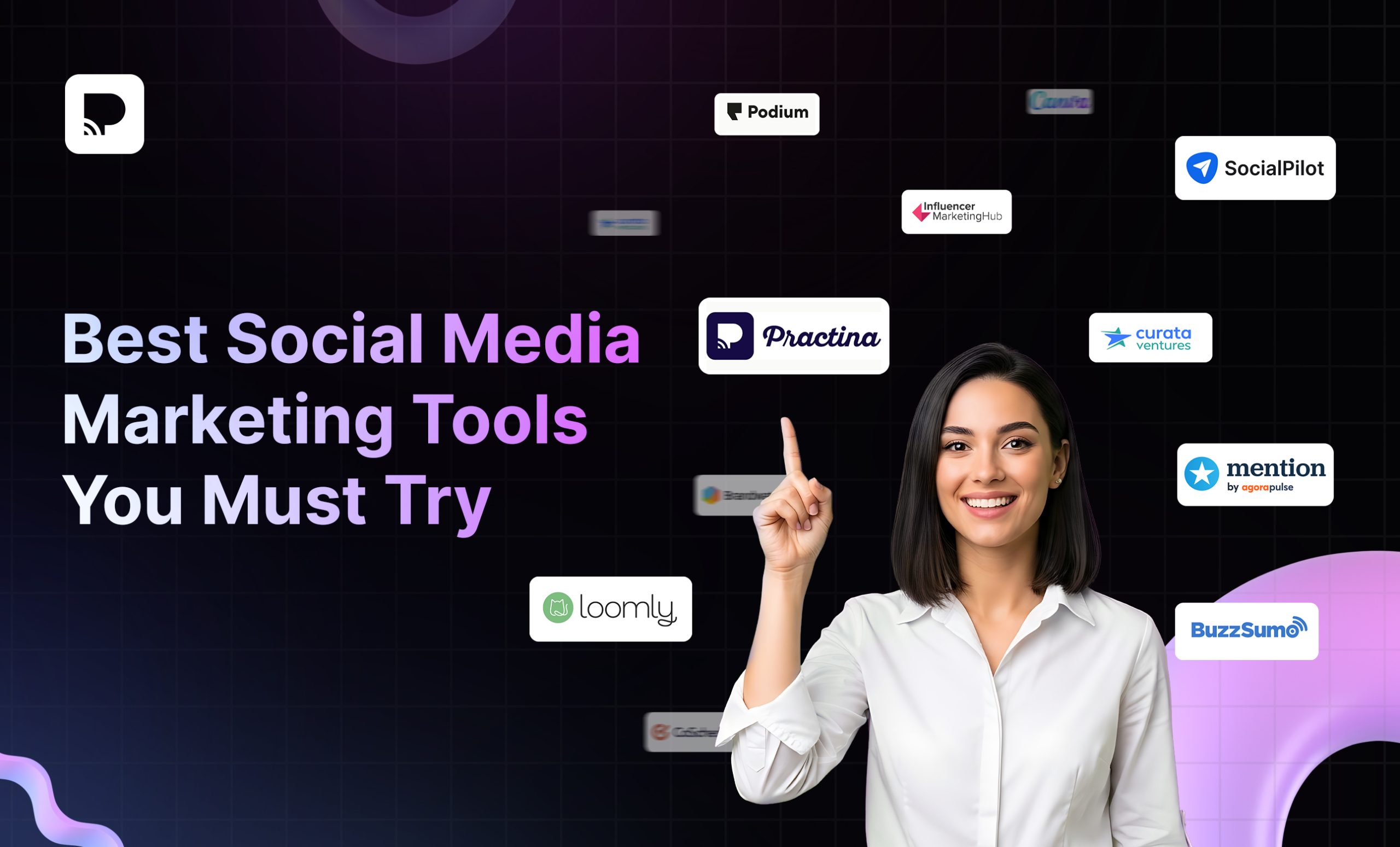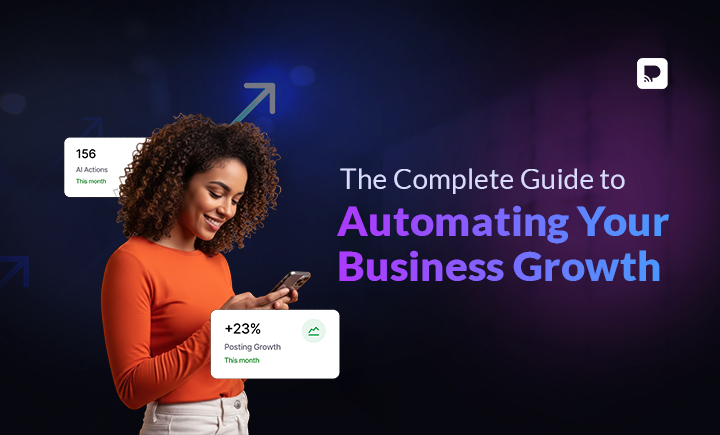Marketing tools for small businesses are more than shortcuts to save time. They shape how people notice you, remember you, and decide to trust you. Every message you share competes with countless others. And without the right tools, your voice can easily get lost. These tools are not only about automation or convenience. They are about making every post, email, or follow-up count.
The real power lies in using them to stay consistent and personal at the same time. When your business feels present and genuine, customers respond. That’s when tools stop being simple add-ons and start becoming growth engines.
Discover Why Startups Choose Practina
Try NowMarketing Tools for Small Business: The Vital Resources
A marketing tool is something you use to share your message. It helps you connect with people, grow your brand, and track progress.
But here’s the catch. Not every platform or resource counts as a true marketing tool. A tool is useful only when it helps you reach your audience. It should also make your work easier and your results stronger.
Most tools today are digital, giving you faster and smarter ways to market. From social media platforms to email software, each one serves a purpose. And the right tool is the one that aligns with your goals.
Marketing Tools for Small Businesses: Growth at a Scale
Running a small business takes effort. But the right tools make it easier to grow. They save you time, cut extra work, and keep you focused. Here are some tools you should start using today.
▪ Social Media Is More Than Just Posting
Social media is important for visibility. But managing many accounts daily can drain your time. A social media tool lets you schedule posts and stay consistent. It also helps you reply to comments and messages in one place. And you can track likes, shares, and clicks to see what works.
▪ Email Still Builds the Strongest Connection
Email is still one of the best ways to reach customers. You can send welcomes, offers, or updates without manual effort. These platforms let you segment your audience for more personal messages. For example, new customers get tips while regular ones get special offers. And with automation, your campaigns keep running even when you’re busy.
▪ A CRM Keeps Everything in One Place
A CRM keeps all customer details in one spot. You can track calls, purchases, and past conversations easily. It reminds you to follow up so no lead is missed. And you can automate small tasks like thank-you emails or reminders. This makes customer relationships stronger and improves your sales process.
▪ Content and Design Make You Stand Out
Good content gets attention and builds trust. But creating it daily can be tough without the right help. Design tools let you create posts, graphics, and even short videos. They come with ready templates, fonts, and stock images. And they keep your brand consistent across all channels.
▪ Analytics Tell You What Really Works
You can’t improve if you don’t measure results. Analytics tools show how people use your website or ads. You see what pages they like and where they drop off. And that helps you fix issues and make smarter decisions. With data, you spend less and get better outcomes.
| Instant Tip: You don’t need every tool on the market. But these categories give you a strong starting point. They save time, improve results, and help your small business grow. |
What Makes the Best Marketing Tools for Small Businesses?
Marketing automation tools aren’t about saving time only. They help you make marketing smarter and more connected.
▪ Look Into the Automation Capabilities
A good tool should cover more than one channel. You should be able to automate emails, texts, ads, and social posts. And workflow builders should let you set rules and customer journeys easily. This makes your campaigns faster, consistent, and more personal.
▪ It Should Work With What You Use
You already use tools like CRM, CMS, or sales platforms. Your automation tool should connect with them smoothly. And when everything works together, you avoid silos and mistakes. This keeps your data flowing and your team working better.
▪ Don’t Pay for What You Don’t Need
These tools can be free or very costly. The best choice is not always the cheapest or the most expensive. You should look for features that truly support your business needs. And you should only pay for what saves time and drives growth.
▪ If It’s Hard to Use, It’s Not Helping
A tool should not confuse your team. It should have simple dashboards and drag-and-drop features. And if a tool takes months to learn, it slows everything down. Good support and guides should also be there when needed.
▪ Know What’s Working
Marketing without data is guesswork. The right tool gives you reports you can actually use. You should track conversions, engagement, and costs with clear dashboards. And these insights should help you improve strategies and plan better campaigns.
10 Marketing Tools for Small Businesses
1. Practina
Practina is one platform to manage all your marketing. It brings ads, posts, reviews, and leads together in one dashboard. And it makes the entire process simple.
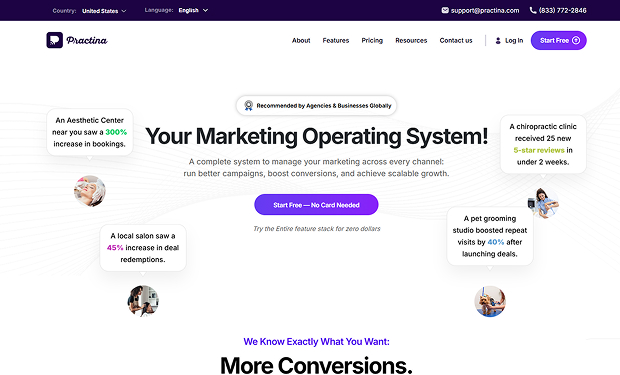
Here’s what you get with Practina:
▪ Deals
Create offers people can’t ignore. Discounts, free consultations, or special packages work best. Practina turns them into ads and posts. It also adds a Deal page to your site. The page updates in real time and shows how fast deals are claimed. That urgency pushes customers to act quickly.
▪ Reputation AI
See and respond to all your reviews in one place. Positive or negative, AI helps you reply with the right words. You can even share top reviews on social media with ready templates. And those reviews become strong marketing assets for your business.
▪ Review Widget
Show your best reviews directly on your website. You decide which reviews to highlight and how they look. This builds trust instantly with anyone visiting your site.
▪ Lead Center
Never miss a lead again. Practina sends instant alerts when someone engages with your ads. You can follow up right away while interest is still high. Quick action often turns into conversions.
▪ Gallery AI
Real photos and videos connect with people better than stock images. Capture those moments in your business, and Practina handles the rest. It creates captions, adds hashtags, and schedules posts that show the real side of your brand.
▪ Multilingual Support
Reach customers in their own language. Practina creates posts, ads, and blogs in multiple languages. And you can switch your dashboard language anytime to work in what’s comfortable for you.
▪ AI Ads
Create, run, and manage ads across all platforms in one place. Practina tracks performance and gives insights to refine your campaigns. Smarter ads mean better results with less effort.
▪ AI Posts (Free Forever)
Keep your feed active without spending hours. Share a few details, and AI generates posts for you. Use original images or stock photos, tweak if needed, and publish in seconds.
▪ Auto-Scheduling & Posting (Free Forever)
Plan and schedule weeks of content at once. Practina suggests the best time to post for each platform. And with drag-and-drop scheduling, adjusting your plan is quick. You can even boost high-performing posts to expand reach.
2. MailChimp
MailChimp helps you handle email marketing from start to finish. You can create mailing lists, newsletters, and automated campaigns in one place. The tool also gives you prebuilt templates to design faster and smarter. You can even test campaigns before launching them to your audience.
For small businesses, this means less stress and more time saved. You don’t need technical skills to send professional emails that work. Reports show which campaigns bring clicks, so you know what to improve. You can start free and only pay as your audience grows.
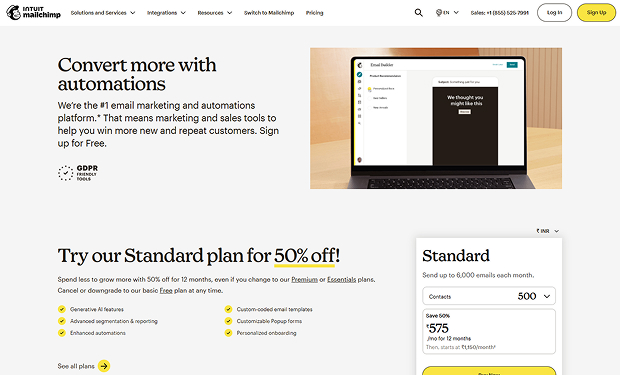
3. Eventbrite
Eventbrite makes event planning simple for businesses of any size. You can create events, sell tickets, and manage registrations in one place. The platform collects guest details and builds attendee lists for future use. It also connects with MailChimp and Facebook to help promote events.
For small businesses, this is more than convenience. Events build strong customer relationships that social media alone cannot. Eventbrite saves you from juggling multiple tools for one event. It keeps everything organized while helping you attract more attendees.
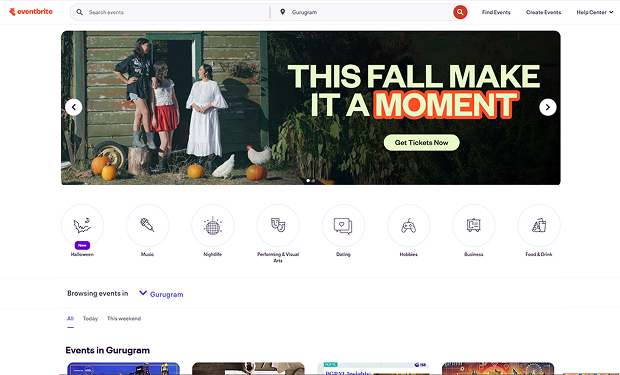
4. LinkedIn
LinkedIn is more than a networking platform for professionals. You can use it to promote your business and build real credibility. It allows you to connect with clients, partners, and potential hires. Regular posts also help your audience trust you as an expert.
This matters for small businesses that want visibility. When people see your updates, they remember your business more often. You can also run ads targeting industries, roles, or even locations. That means you spend less but still reach the right audience.

5. Asana
Asana makes team projects easy to track and manage every day. You always know who is doing what and when it’s due. That clarity helps you avoid confusion and keeps everyone on track. Updates are visible in real time, so you don’t miss progress.
For small businesses, this is a big advantage. You can organize tasks without long email threads or endless meetings. Templates help you repeat common processes without starting from zero again. And yes, many big companies already use it to stay efficient.

6. Canva
Canva is a design tool anyone can use. You don’t need advanced skills to create something that looks professional. It works for social media posts, flyers, presentations, and more. The drag-and-drop editor and AI tools make the process even faster.
It also gives you control over branding. You can keep logos, fonts, and colors in one place and apply them to any design. And with access to templates, stock photos, and icons, you save time while keeping everything consistent. Teams can even design together in real time and share instantly.
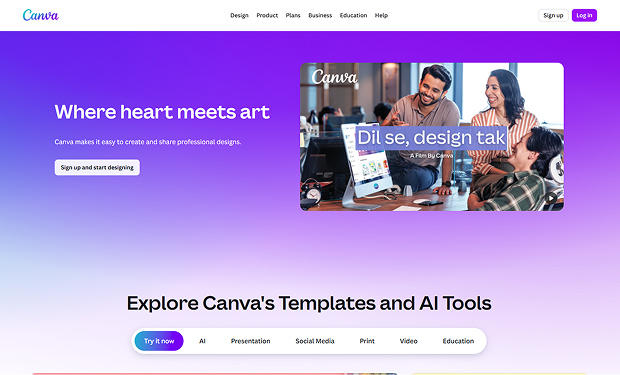
7. Brevo
Brevo, once called Sendinblue, is built for email marketing. You can design emails, set up automations, and track results in one place. The drag-and-drop builder keeps things simple, and features like A/B testing and segmentation help improve performance.
The platform goes beyond email, too. You can send SMS campaigns, deliver transactional updates, and manage contacts with ease. Reports show what works, so you can refine campaigns faster. And with automation doing repetitive work, you focus on building better customer connections.
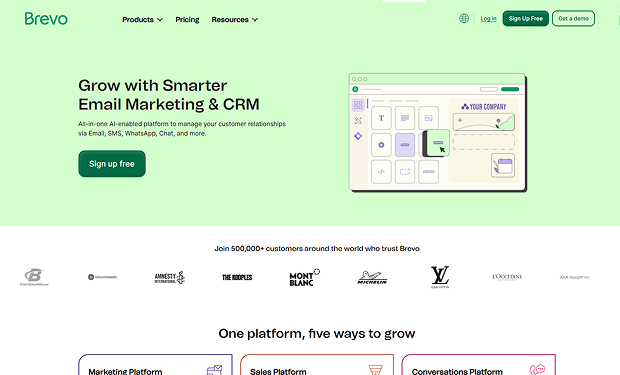
8. Ahrefs
Ahrefs is a platform for SEO and content marketing. It helps you find keywords, track backlinks, and analyze competitors all in one dashboard. You can also monitor brand visibility and discover new content ideas. The data shows what drives traffic and where improvements are needed.
Instead of guessing, you get clarity. You can audit your site, explore trending topics, and spot opportunities to grow. And because everything is in one place, you don’t waste time switching between marketing tools for small businesses.
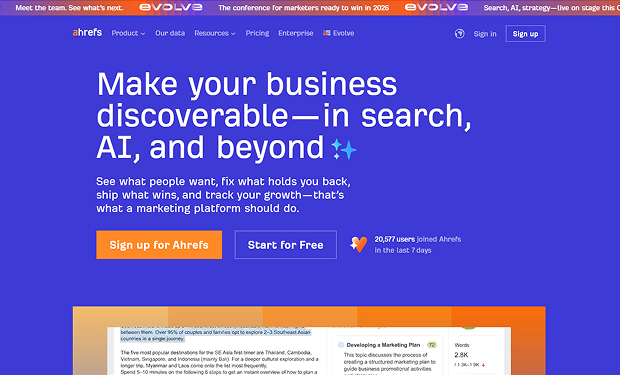
9. Tidio
Tidio helps businesses connect with customers in real time. It combines live chat, chatbots, and a shared inbox so you never miss a message. Its AI agent can answer common questions, recover abandoned carts, and even recommend products.
The result is faster and simpler support. You can see who’s browsing your site and what they’re doing. And with automated workflows, you increase sales while keeping conversations organized.
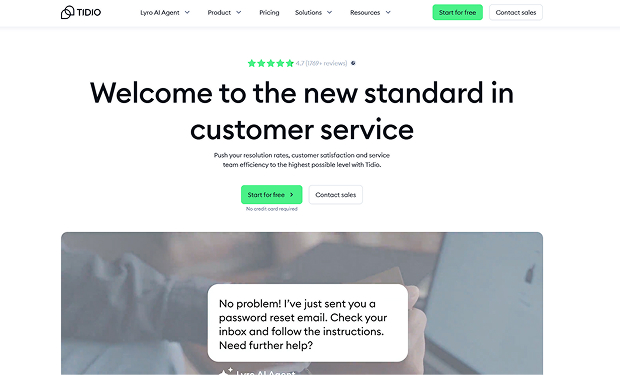
10. Keap
Keap, earlier called Infusionsoft, is a CRM with automation built in. It lets you manage leads, track customers, and follow your sales pipeline from start to finish. You can send emails, schedule calls, and automate follow-ups without missing a step.
It also replaces multiple separate tools. You can send invoices, take payments, and use integrations for agreements in one place. And with reporting and lead capture forms, you always know what’s working and what needs attention.
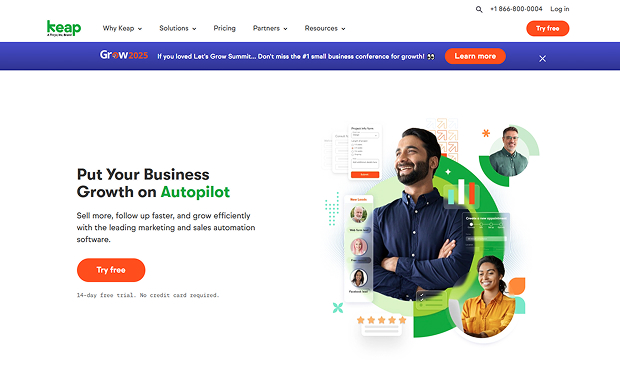
Your Tools Show How Well Your Marketing Really Works
There is no single way to measure the success of your tools. It depends on which tools you choose and how you apply them. Email and social media insights show how your campaigns perform. Clicks, likes, and conversions give a clear picture of effectiveness. Engagement with blogs, ads, or videos reveals what really connects with people. If users respond or interact, it means your message is working.
Project management tools show if tasks are completed on time and properly. They also highlight how well your team collaborates during a project. Communication tools matter too because they reduce confusion and improve teamwork. And when teams use them often, it shows the tools are useful.
Marketing tools are important because they keep your strategy running smoothly. But even the best strategy fails without the right tools to support it. With the right setup, you save time, reduce stress, and get results.
Conclusion
Running a small business is never simple. You already wear many hats and still need to stay visible. That’s where the right tools make the difference. They guide your efforts, keep things on track, and show you what really works. Practina does this without adding more to your plate. And when marketing feels easier, you finally get the space to focus on growing your business.
FAQs
Q: What Are the Best Branding Tools for Startups?
A: You can use branding tools like Practina to build strong recognition and trust. They help you create posts, manage identity, and communicate consistently everywhere.
Q: Which Marketing Tools for Startups Should I Consider First?
A: You should start with tools that simplify social media and emails. They save time, boost visibility, and ensure your audience sees you regularly.
Q: How Can Marketing Automation Tools for Start-ups Help Me Grow Faster?
A: You can automate repetitive tasks like emails, posts, and lead follow-ups. This keeps your marketing consistent, personal, and frees time for scaling operations.
Are There Free Marketing Tools for Startups that Actually Work?
A: Yes, you can access free tools for design, scheduling, and analytics. They help you stay visible, attract customers, and track growth without costs.
Q: How Do I Choose the Right Marketing Tools for Startups?
A: You should match tools with your goals, budget, and customer needs. This ensures every resource you pick adds value and strengthens business growth.
Q: Why Are Analytics Important When Using Marketing Automation Tools for Start-ups?
A: Analytics show you what’s working and where improvements are required. With insights, you can refine campaigns, reduce costs, and increase conversions smartly.


